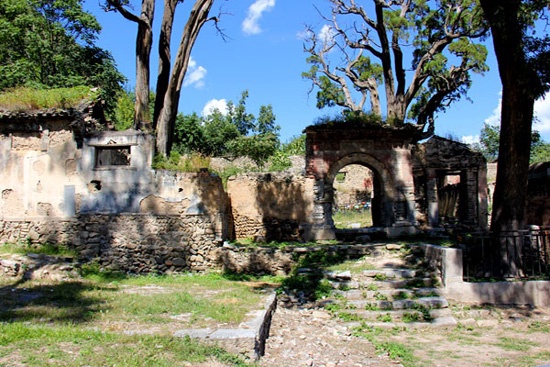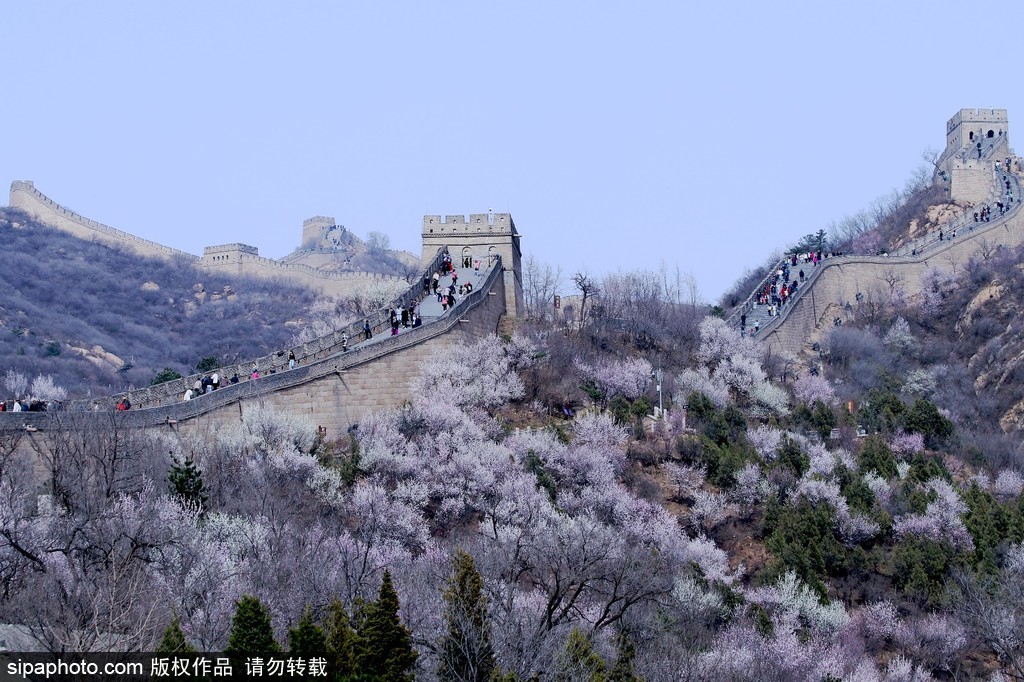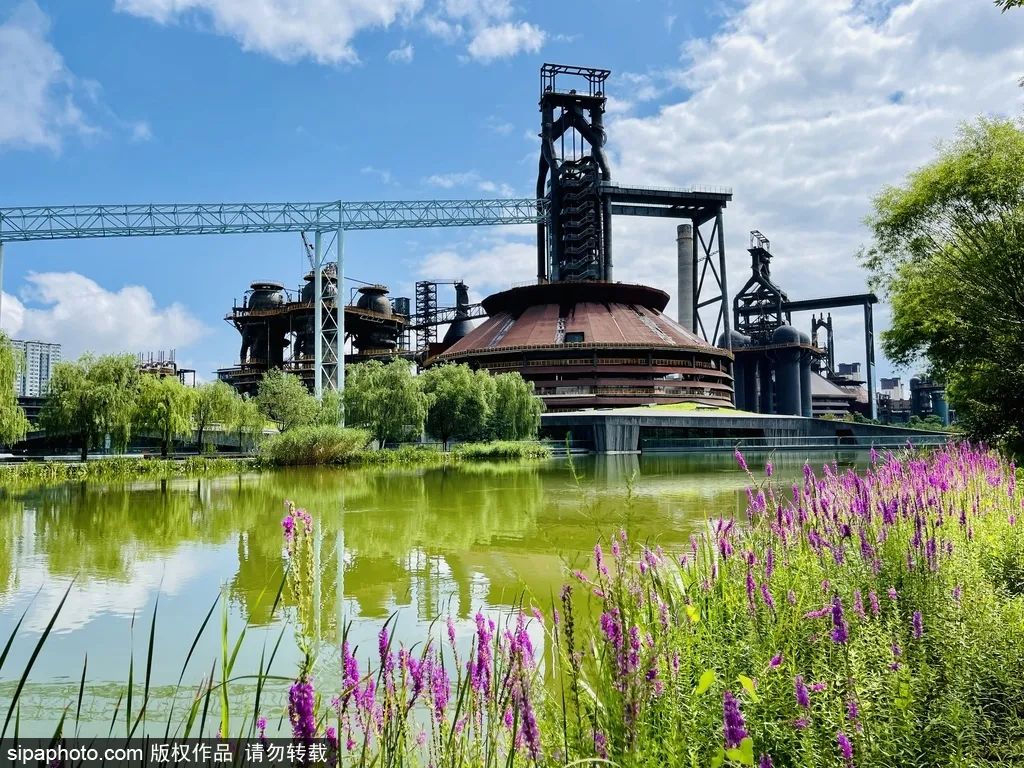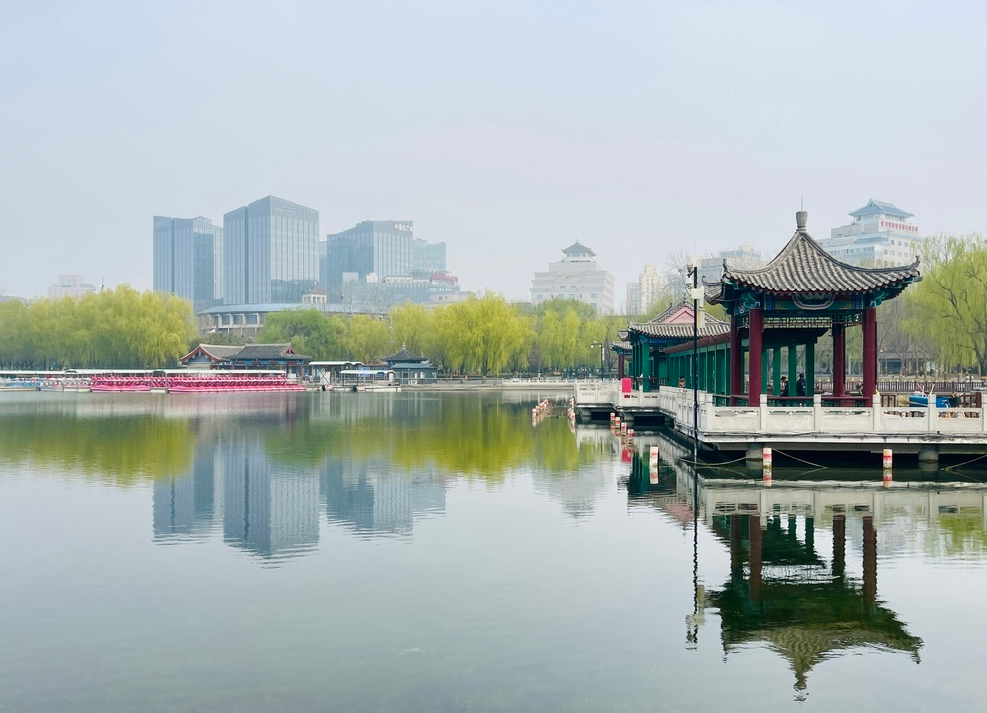
Beijing's Mentougou District, is full of sites to visit, but Lingshui is definitely the historic highlight of the bunch. This small town is about a thousand years old, and the heady scent of history permeates its plastered rock walls, generations-old homes, and massive ancient trees.
Quaint homes have been built and rebuilt over the centuries, so there is definitely a little bit of shiny new to contrast against the crumbling ruins, but Lingshui has certainly done well to pay respects to its own history.
The mountain-encircled town is particularly renowned for having produced intellectuals. Counter-intuitively, this humble farm village somehow managed to produce 22 scholars, before the end of Imperial China. Today, the homes where said scholars came from are indicated by plaques.
Local resident Mr Tan continued on this theme of farmers who broke the mold. "Three years ago, there were seven students [from Lingshui] enrolled at universities." He also duly noted that another resident's son has become a professor at Berkeley University.
Temples are also important in Lingshui, the Nanhai Huolong Temple being one of them. Its name translates to "fire dragon" because according to Chinese philosophy, fire can resist water, thus helping to fend off the frequent floods suffered before.
"The other temple is the Temple of the Goddess," stated Tan. "A five-toed dragon was carved at the temple. Normally only four-toed dragons could be carved at that time. But this one got the Emperor's permission. Things can't be carved as you like without the Emperor's orders."
Walking along its cobblestone walkways, noting piles of firewood stacked against a backdrop of rickety traditional architecture, one may get the feeling of being on a movie set. In fact this is likely close to the truth as quite a few movies and TV shows have shot scenes in Lingshui. According to local resident Tan, Lingshui has even welcomed the superstar likes of Jackie Chan and Zhang Ziyi.
Alongside of film-makers, photographers, sketch artists and painters are also drawn to Lingshui's views and historic details. Relics are scattered throughout. Keep your eyes peeled for wells, a grinding stone and an antique rice-cleaning machine that stand as monuments to the years. Amazingly, entire antique edifices still manage to stand, such as the hall which used to house meetings for teams of farmhands. The building is now vacant, and visitors are welcome to browse, crossing their fingers so that the rafters above remain in place.
But many of Lingshui's structures have not proven so hardy, or lucky. Quite a few have been damaged or destroyed by the Cultural Revolution, the attacks of Japan, and the passage of time. Today, many of them are finally being restored in anticipation of a growing tourist industry. If you have any particular interest in seeing examples of dilapidation in pre-renovation Lingshui, then the sooner you can make the 75 kilometer trip out, the better.
But even in the renovated homes, the feeling is still rustic. Bed mattresses are set up on kangs, where fires lit underneath keep bodies warm through the frosty winter nights. The feeling is definitely that of staying in a country home as opposed to a hotel. Prices humbly start at 20 yuan per night, and home-cooked meals are also available. Eggs produced in the backyard and local produce complement regional tea brewed with water from the adjacent river.
Yes, everyone will enjoy strolling through Lingshui's web of passages, but the chance to chat and dine with the very people who've lived there for generations is an opportunity that shouldn't be missed.
Getting there:
From Pingguoyuan subway station, take bus #929 to Junxiang.
If the #929 bus will not go all the way to Junxiang, then take bus #892 to Lingshui. Then hire a driver to complete the last 5 km leg of the trip. (15 yuan).



